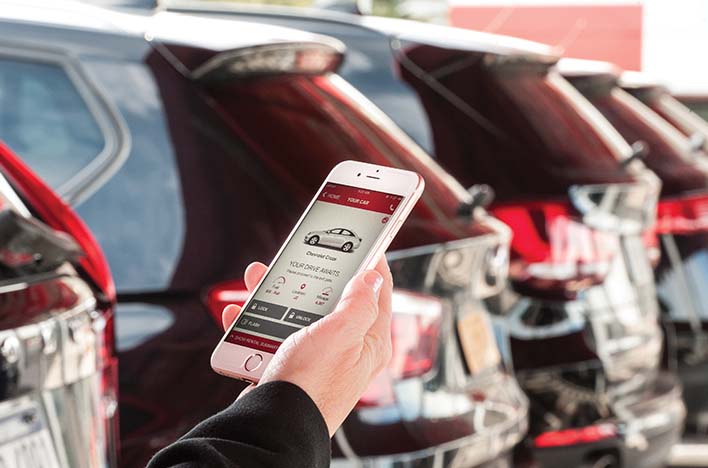Imagine a world where you could drive a rental car away from the airport without ever standing in a line or talking to a rental agent—no need to even pick up a key.
With Avis Budget Group’s Mobility Lab, a program that recently launched here in Kansas City, that’s possible now.
Avis Car Rental customers throughout the metropolitan area can now completely control their rental experience from their phones, from making reservations to extending rentals to unlocking the car.
For Bob Bennett, chief innovation officer for Kansas City, Missouri, it’s another sign of KC’s progress toward becoming the nation’s premier Smart City.
“This is a mobility solution,” he said. “Not a rental car solution.”
Arthur Orduña, Avis Budget Group’s executive vice president and chief innovation officer, said there are a number of reasons the Midwest is the perfect place to launch the Mobility Lab. For starters, the existing Avis Budget team in Kansas City is superlative.
Then there’s the size of the company’s presence here. With the airport, the 20 Avis locations in the Kansas City metro area, and the Nebraska markets of Lincoln and Omaha, which also are included in the program, the regional fleet includes 5,000 vehicles. The Kansas City-Omaha-Lincoln triangle offers a wide array of information collection possibilities.
And last, but certainly not least, the company was impressed with Kansas City’s already established leadership position in connectivity
and technology.
Avis Budget Group’s commitment to technology is long-standing, said Katie McCall, the company’s vice president of global public relations. It was the first rental car company with a mobile application, and it is working to transform a significant portion of its U.S. fleet to being fully connected early this year. Avis Budget has announced plans to have a fully connected global fleet in 2020.
When the new Mobility Lab project was announced, Larry De Shon, CEO of Avis Budget Group, was complimentary of Kansas City’s technology efforts.
“Our Mobility Lab in the greater Kansas City area extends our next-generation mobility initiatives,” he said in a statement. “The steps we’re taking with connected car and smart technologies will increase customer satisfaction as well as reduce operational costs in the near term, while also preparing us to meet the evolving needs of consumers, entrepreneurs, corporations and governments like the City of Kansas City, a recognized global leader for its Smart City advancements.”
Bennett is excited about the type of data that will be collected from the Mobility Lab’s connected vehicles—covering everything from street conditions and travel patterns to where Kansas City’s visitors come from. Further, Bennett said he hopes a new Kansas City International Airport terminal can be built to leverage such programs and enhance connectivity across the board.
The first set of data from the Mobility Lab will be available later this spring, Bennett said. He plans to share it with colleagues at the Smart Cities Connect Conference & Expo, which is set for March in Kansas City.
“This is the first project like this in the world,” Bennett said. “We are at the leading edge.”

